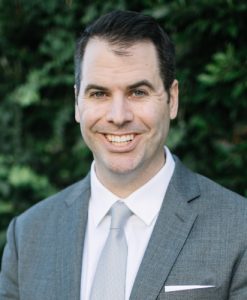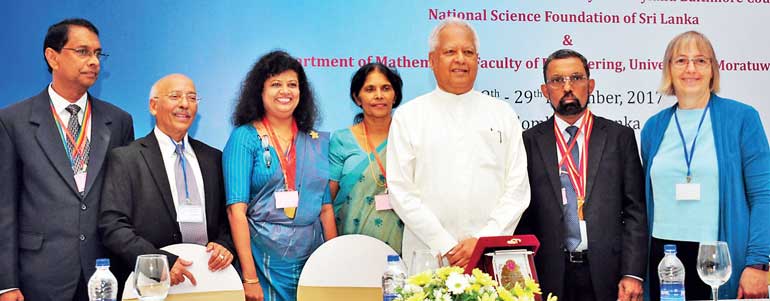 While previously working on studies related to aging populations and patients with kidney disease, Statistics Professor Bin Nan came across a set of emerging issues that could not be resolved using standard methods. So, he decided to explore new methods, becoming the Principal Investigator on a grant titled “Cutting Edge Survival Methods for Epidemiological Data.” The National Institutes of Health (NIH) recently awarded Nan and his co-investigators — University of Michigan Professors Yi Li and Siobán Harlow — $1.2 million to develop the methods over the next four years.
While previously working on studies related to aging populations and patients with kidney disease, Statistics Professor Bin Nan came across a set of emerging issues that could not be resolved using standard methods. So, he decided to explore new methods, becoming the Principal Investigator on a grant titled “Cutting Edge Survival Methods for Epidemiological Data.” The National Institutes of Health (NIH) recently awarded Nan and his co-investigators — University of Michigan Professors Yi Li and Siobán Harlow — $1.2 million to develop the methods over the next four years.
2018 Carl Cotman Young Investigator Award Recipient Is a Rising Star
 Statistics Ph.D. student Andrew Holbrook received the UCI MIND award for his exceptional work in theoretical mathematics, probability, statistics, and neuroscience and aging.
Statistics Ph.D. student Andrew Holbrook received the UCI MIND award for his exceptional work in theoretical mathematics, probability, statistics, and neuroscience and aging.
UCI’s graduate programs shine in U.S. News & World Report rankings
7 fields of advanced study place in top 10 among public universities on annual list.
Read the full story on the UCI News site.
The Center for Statistical Consulting’s New Director Envisions a One-Stop Shop for Data Analysis Needs
 UCI’s research community gained a new ally with the hiring of a full-time director for the Center for Statistical Consulting. Dr. Joni Ricks-Oddie, who stepped into the new role in February, will also serve as head of the Biostatistics, Epidemiology and Research Design (BERD) unit within the Institute for Clinical and Translational Sciences (ICTS). By managing both the consulting center and BERD unit, Ricks-Oddie plans to streamline processes and improve efficiency so the two groups operate in synch with one another and become a “one-stop shop” for the UCI community and affiliated organizations.
UCI’s research community gained a new ally with the hiring of a full-time director for the Center for Statistical Consulting. Dr. Joni Ricks-Oddie, who stepped into the new role in February, will also serve as head of the Biostatistics, Epidemiology and Research Design (BERD) unit within the Institute for Clinical and Translational Sciences (ICTS). By managing both the consulting center and BERD unit, Ricks-Oddie plans to streamline processes and improve efficiency so the two groups operate in synch with one another and become a “one-stop shop” for the UCI community and affiliated organizations.
Shahbaba Receives $1.7 Million Neural Data Analysis Grant
Shahbaba Receives $1.7 Million Grant to Develop Novel Models for Neural Data Analysis
 Statistics Professor Babak Shahbaba has been awarded a $1.7 million National Institutes of Health (NIH) grant that could have far-reaching implications for future efforts to address memory impairment. The research involves electrophysiological experiments in rats to study how a brain structure — the hippocampus — supports our ability to remember the daily events of our life. Furthermore, the research should lead to new methodologies for handling huge amounts of complex data. The five-year grant, “Scalable Bayesian Stochastic Process Models for Neural Data Analysis,” is a multidisciplinary collaboration between Shahbaba and fellow Statistics Professor Hernando Ombao and Associate Professor of Neurobiology and Behavior Norbert Fortin.
Statistics Professor Babak Shahbaba has been awarded a $1.7 million National Institutes of Health (NIH) grant that could have far-reaching implications for future efforts to address memory impairment. The research involves electrophysiological experiments in rats to study how a brain structure — the hippocampus — supports our ability to remember the daily events of our life. Furthermore, the research should lead to new methodologies for handling huge amounts of complex data. The five-year grant, “Scalable Bayesian Stochastic Process Models for Neural Data Analysis,” is a multidisciplinary collaboration between Shahbaba and fellow Statistics Professor Hernando Ombao and Associate Professor of Neurobiology and Behavior Norbert Fortin.
Minin Co-Edits Special Section on Infectious Diseases in Statistical Science
 Statistics Professor Vladimir Minin recently organized a special section on infectious diseases in Statistical Science in collaboration with Theodore Kypraios, an associate professor of mathematics at the University of Nottingham. The section, written for the broader statistical community, covers the state-of-the-art of statistical inference for stochastic epidemic models for infectious disease data. It includes the following six articles:
Statistics Professor Vladimir Minin recently organized a special section on infectious diseases in Statistical Science in collaboration with Theodore Kypraios, an associate professor of mathematics at the University of Nottingham. The section, written for the broader statistical community, covers the state-of-the-art of statistical inference for stochastic epidemic models for infectious disease data. It includes the following six articles:
[Read more…]
Lakeland Times: “Autism numbers spike: The latest call to action” (Stern quoted)
A great point about this was made about a decade ago by Andrew Gelman, a professor in the Department of Statistics and Department of Political Science at Columbia University, and Hal Stern, a professor in the Department of Statistics at the University of California, Irvine, in their wonderfully titled article “The Difference Between ‘Significant’ and ‘Not Significant’ is not itself Statistically Significant.”
In their discussion, Gelman and Stern touch on the growing awareness that “statistical significance is not the same as practical importance,” and “that dichotomization into significant and nonsignificant results encourages the dismissal of observed differences in favor of the usually less interesting null hypothesis of no difference, and that any particular threshold for declaring significance is arbitrary.”
Read the full story at The Lakeland Times.
Utts Discusses “Statistics for Good Governance” at International Conference in Sri Lanka

Statistics Professor Jessica Utts (right) at an international statistics conference in Sri Lanka. (Photo courtesy of the Daily FT)
What role do statisticians play in governing? A pretty important one, according to Statistics Professor Jessica Utts. The 2016 President of the American Statistical Association (ASA) gave a keynote speech in Sri Lanka titled “The Importance of Statistics for Good Governance and What the ASA is Doing to Help.” The speech was delivered in December at the Institute of Applied Statistics Sri Lanka International Conference (IASSL-IC), which was themed, “Statistics for Good Governance.” IASSL is a nonprofit organization that aims to support the professional development of statisticians and statistical education in Sri Lanka.
As reported by Shannon Jayawardena, Utts explained in her keynote that “good governance means making decisions that benefit the constituents in an efficient and effective way.” Regardless of the organization’s size or structure – whether you’re governing a nation or small club — “data and statistical knowledge should play a major role in the process of making decisions and setting policy,” said Utts. However, she also noted that this requires “good” data, and while “collecting massive amounts of data has become easy, collecting good data remains difficult.”
This is where statisticians can help in a variety of ways. First, Utts said that they can help organizations understand the difference between good and bad data, which is “crucial for good governance.” Second, they can help “educate people, ranging from politicians and policymakers to the general public, on the appropriate use and interpretation of data.” Finally, they can “play a major role in improving statistical methods for more efficient and accurate data collection and analysis.”
— Shani Murray
2018 ICS Projects and Predictions
Professors Kurt Squire, Ramesh Jain and Vladimir Minin provide a sneak peak of what technological innovations are ahead in 2018.
- « Previous Page
- 1
- …
- 12
- 13
- 14
- 15
- 16
- 17
- Next Page »